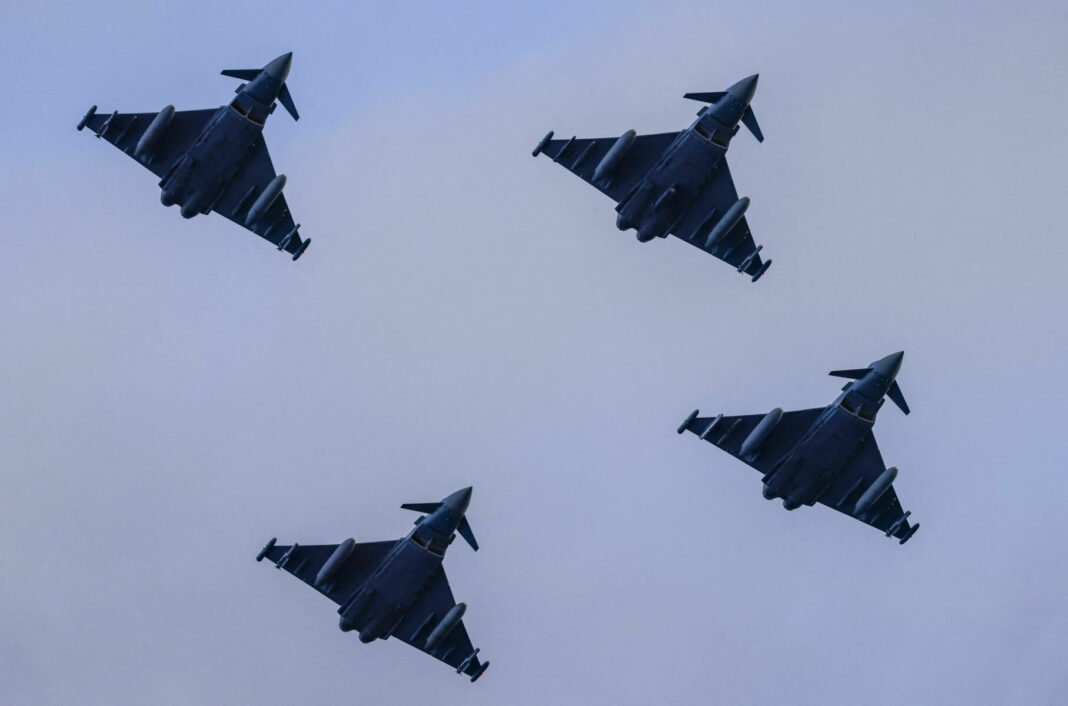Germany’s new government is apparently no longer standing in the way of the planned sale of Eurofighter Typhoon jets to Turkey, paving the way for a deal that had been stalled by political tensions, according to the German Handelsblatt daily.
The new federal administration under Chancellor Friedrich Merz is expected to take a more permissive approach toward arms exports. This represents a departure from the position of the previous coalition government, which comprised the Social Democratic Party of Germany (SPD), Alliance 90/The Greens and the Free Democratic Party (FDP). That coalition had opposed the Eurofighter sale to Turkey, citing political concerns.
According to Handelsblatt, sources in the German government and defense industry have said the export deal may soon be approved. Turkish President Recep Tayyip Erdoğan recently met with Chancellor Merz during the NATO Leaders’ Summit held in The Hague. The meeting is seen as contributing to the current momentum behind the Eurofighter request.
At a press conference following the NATO summit, President Erdoğan stated that talks with both the United Kingdom and Germany on the Eurofighter matter had been constructive. “We have conducted meetings with both the UK and Germany on the Eurofighter issue. There are positive developments on this matter. Once these developments are fully realized, we will take our steps,” he said.
Turkey submitted its request for some 40 Eurofighter Typhoon aircraft earlier this year. The fighter jet was jointly developed by Germany, the United Kingdom, Italy and Spain. For any sale to proceed, all four partner countries must approve the export.
The potential sale holds particular significance for Airbus Defense and Space, which is based in Manching, Germany. The company plays a central role in the Eurofighter consortium and is responsible for around 20 percent of the aircraft’s core components. Airbus has long sought additional international orders to maintain production capacity and support ongoing development of the aircraft’s systems.
Although Germany, Spain and Italy have expressed interest in purchasing additional jets, those orders alone are not sufficient to ensure long-term industrial sustainability. Michael Schöllhorn, the CEO of Airbus Defense, has previously criticized Germany’s restrictive arms export policies and has called for reforms that would make it easier to proceed with deals involving allied countries.
While the Eurofighter has recorded over 600 deliveries to date, its global reach remains limited when compared to the American-made F-35 fighter jet. The F-35, produced by Lockheed Martin, has secured more than 3,000 international orders.
Turkey has traditionally relied on American military aircraft. Its current fleet includes the F-16 fighter jet, but its plans to acquire the more advanced F-35 fifth generation fighter jets were blocked by the United States. This followed Turkey’s decision to purchase the Russian-made S-400 air defense system, a move that triggered concerns within NATO.
European governments now view the Eurofighter deal as a way to re-establish defense industry cooperation with Turkey. A senior defense official told Handelsblatt that the sale could help re-integrate Turkey into European defense supply chains.
A spokesperson for NATO acknowledged the German government’s initiative to establish clearer export rules among European partners. The spokesperson said such intergovernmental agreements were viewed with respect, as they could help streamline future joint defense projects. A similar framework already exists between Germany and France.
Germany’s new coalition agreement describes Turkey as an important NATO ally and expresses a desire to revitalize bilateral relations. The agreement mentions a commitment to strengthening cooperation with Turkey and other key partners in the alliance.
While formal approval from all consortium members is still pending, political signals from both Berlin and Ankara suggest that the deal is advancing. The sale would not only support industrial needs within Europe but also provide a new avenue for dialogue and engagement between Turkey and its European allies.

